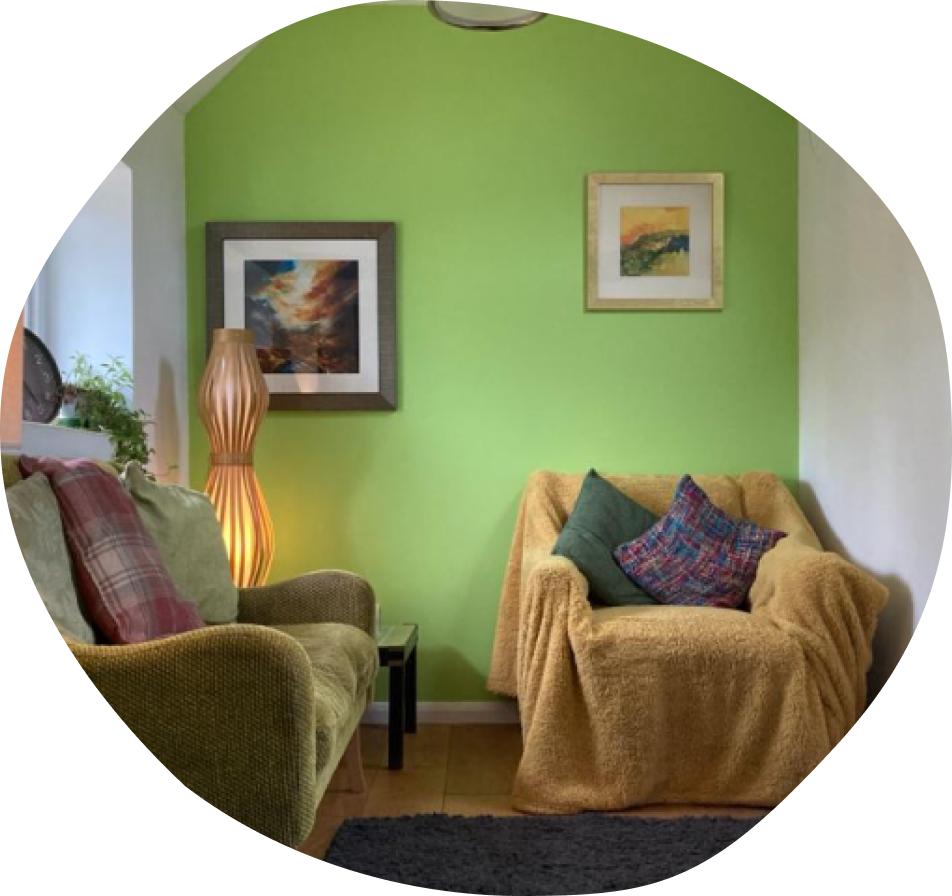
What does counselling provide?
Counselling provides a safe, confidential, non-judgemental space where you are able to voice whatever you feel is important.
A counsellor is separate from the rest of the people in your life. Sharing with a counsellor allows you to identify and check your feelings and to explore them before you take further actions. It gives you a chance to vent about a certain experience, or life in general. You can plan, explore, share, hide, test and understand.
Through counselling, you are able to develop coping mechanisms which can help you deal with everyday life. It gives you back control over your thoughts, feelings and your life. It helps you to regulate your emotions.
Do you need counselling?
Find out what people on the autism spectrum often struggle with. Does anything resonate with you? If so, you could benefit from autism counselling.
Thoughts
I think a lot
It can feel like your mind never rests, always processing, can be focused on detail
I can’t control my thoughts
Inability to switch thoughts off, thoughts can quickly become negative
Feelings
I struggle to express myself emotionally
I find it easier to explain my thoughts rather than my feelings.. You may say ‘I think’ rather than ‘I feel’
I feel emotionally overwhelmed
Can experience an overload of emotions that seem to come out of nowhere and are hard to control
I feel mentally overwhelmed
I find dealing with too many social interactions overwhelming
I can’t process a lot of information all at once and prefer time to deal with one specific area at a time
I often feel low on energy
I can tire easily and sometimes lack motivation
I procrastinate a lot
I struggle to control my anxiety
I feel like I have constant anxiety often rumbling in the background
I sometimes experience panic attacks
I experience periods of depression
I sometimes feel low, it feels like it comes out of nowhere
I sometimes have dark thoughts and struggle to see the point in life
Relationships
I find it hard being around other people
I find many social interactions a complex experience especially new people;
anxiety inducing, feeling vulnerable, I will avoid if I can
My partner doesn’t understand me
I feel like we speak different languages, we argue over details
I do not feel fully heard
I feel there is not enough empathy shown
I find relationships difficult
I find being in a relationship can be complex
I like spending a lot of time alone which my partner doesn’t like
I can feel emotionally suffocated
It feels like I am always upsetting people close to me
I would like to know how to navigate a relationship better
I find being a parent complex
I feel overwhelmed by my children’s needs
I like to have quiet and order which is impossible with children
I feel being in a relationship and working whilst having children very overwhelming
I feel that I have so many obligations of which feel to much
My relationship with someone on the autism spectrum is difficult
I feel like we don’t fully understand each other
I can’t seem to do things right
I am often picked up on detail
Things need to be a certain way and my needs are not considered
I want to better communicate with my autism spectrum/neurotypical partner
We have different communications styles and ways of showing feelings
I would like to learn how to navigate this with the intention to understand each other better
Autism/ADHD diagnosis
I have received an Autism/ADHD diagnosis and I want to understand myself better
I would like to explore and understand what my diagnosis means to me
I would like to find my areas of strength and areas I would like to develop further
I have autistic/ADHD traits but no diagnosis and want to better understand myself
I do not feel I want a diagnosis at this time however I would like to explore ways to cope better
I recognise traits in my family and would like to explore how this affects me
Without a diagnosis I feel a lot is expected of me to behave as a neurotypical
How we work together
In counselling sessions, I start from a blank canvas and intuitively work alongside you, to reveal your unique way of seeing the world. From there, together we are able to find the best way forward.
I adjust my approach to suit you—I am comfortable just listening or, if you prefer, actively participating in your session with a whiteboard. I work transparently and I clearly explain my thinking.
One thing I encourage is to be yourself—you can feel able to ask any questions and to speak without having to filter what you say, instead of thinking, “Is this socially appropriate?”.


Your unique needs are supported
Despite there being many common traits apparent within Autism, every person I meet is completely unique. Because the spectrum is so broad, I view it as a diverse landscape instead of a single line—everyone should be supported uniquely, in a way that suits them.
I have worked with people who respond better to a solution-focussed approach, whereas others need a place where they can safely share what they need to, without feeling directed. With my clients I start from a blank canvas, and work directly with them to provide the support that they need.
My role as a counsellor is not the ‘expert‘. Instead, I’m a person with lots of experience working with a variety of different issues. I have extensively researched Autism in a professional capacity, and also have first-hand family experience. I see Autism as different rather than disordered, compared to a neurotypical mind.